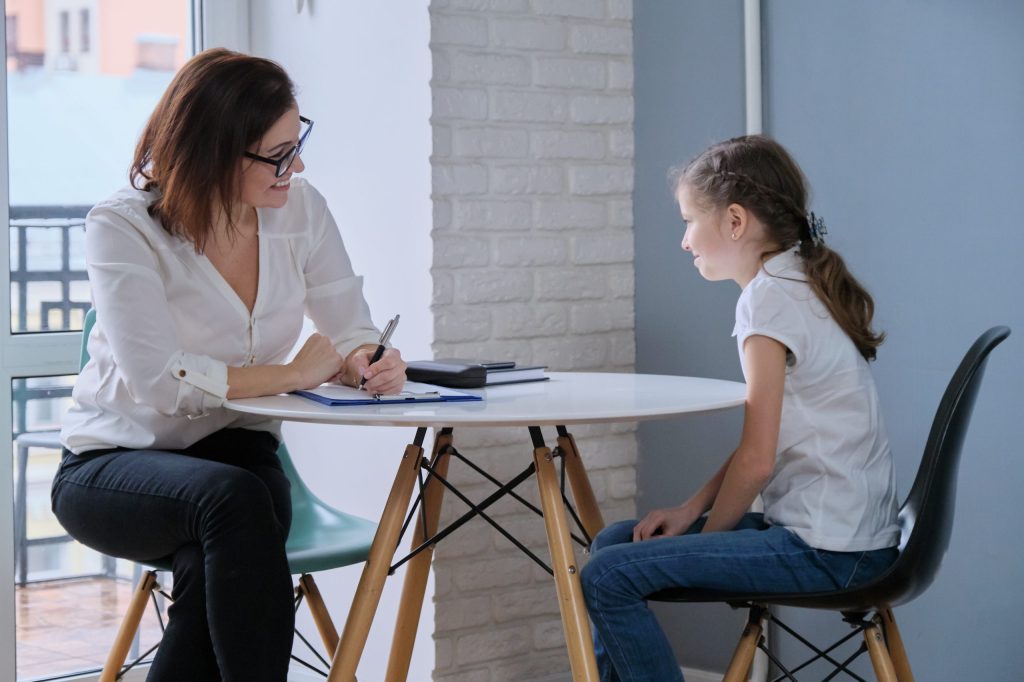Celebrating World Autism Acceptance Week: In conversation with Jessica Narowlansky
30th March, 2022
Our Head of Home-schooling Felicia speaks to Jessica Narowlansky, Psychotherapist and Specialist Education Consultant at the Child and Adolescent Development Centre London, about how we can play to the strengths of autistic children and support the families we work with.

If I wanted to create a team of specialists around my autistic child, where would I start?
Jessica: It is so important that you don’t feel you have to do this alone. Both Enjoy Education and the CDC offer one-to-one consultation to parents to discuss the immediate situation as well as a long-term roadmap for their child.
We work with parents so they can feel informed and empowered to find the right people for their child and family, and to feel able to ask the right questions of the professionals they meet. As a parent you aren’t expected to know everything about the many fields of therapeutic support – this is where parents should feel able to expect professionals to help them understand.
I always encourage families to find as much support for you as parents as you do for your child; understanding what different professionals actually do and how they can help is a big part of this.
When building a team around an autistic child, what should parents take into consideration?
Jessica: My advice is to try to find support from professionals who are clear that they have an understanding of and experience with autism. Historically the causality behind many of the challenging behaviours associated with autism were not really understood so referral criteria was skewed towards boys, so sadly girls were often overlooked. I also support parents in understanding that intervention goes through phases as a child’s need changes.
For example, a speech and language therapist (SALT) working with a 7-year-old has a very different function to a SALT working with a 16-year-old. Students will go from learning communication structures when they are younger to understanding social cues and social dynamics. For example, a student might not understand why a child bumped into them in the corridor and make assumptions that this was personally aggressive, whereas a SALT can help them understand how to evaluate if this might have just been an accident. A SALT helps build the skills to independently understand situations and people.
Felicia: If you are looking to build a tutor team around your child, you will already know the importance of finding the right personality fit. When we match students with tutors, we also consider their communication style, their role as a potential mentor, their personal interests and teaching style.
Are they the kind of tutor who can match that child’s organisation skills? Or will they be someone who builds deep trust and can start to take them on short trips and excursions? We work closely with your family to understand the needs of your child in that moment, and build a programme from there.

In your experience, how can home-schooling support autistic students who are struggling with the school environment?
Jessica: If you see your child disengaging or refusing the structures of school, I want you to know you are not alone. I understand how difficult those moments can be. I would recommend that you start to build a team around your family to understand the underlying issue.
An education consultant who really understands Autism will help you explore your options. They can work with your school, possibly offering thoughts as to how the school might make reasonable adjustments to your child’s day, but most often will help the school and the parents understand how to get the most out of the professionals supporting your child and to work together as a team.
However, if this approach to education is not working, a period out of mainstream school could be a great option for your child. At home you can create a positive learning environment. It allows your child to step away from the triggers of stress and anxiety and start learning again at their own pace. I’ve seen how Enjoy have created a ‘safety net’ for some of the young people with whom I work and cushion their landing back into enjoying learning again.
This can also give parents and carers some much needed time to think and evaluate what the issues are and what is best for their child without feeling the pressure of time and school-imposed deadlines weighing heavily on the family.
Felicia: Home-schooling gives students the mental and physical space to find their personal way through education. We work with specialists like Jessica to create a fantastic therapeutic team around a child and shape the learning week to that child’s needs.
First, we build a tutor team and timetable that allows their area of interest to flourish. Then tutors start to fill the gaps of any missed curriculum. Finally, we introduce students to a fantastic mentor who works on building new experiences and socialisation opportunities into the week. We involve students and parents in every decision we make.
Autism in teens. What considerations do you need when support students at this age?
Jessica: I will often have parents come to me at this stage of their child’s development. What you can’t underestimate is that even if your child has an autism diagnosis, you also have a teen on your hands! It is not unusual for autistic teens to go through a period of questioning their identity at this age, because every teen is doing so.
As a parent, your job is to accept them completely as they are – this is where parents may also need some help. Not only is this acceptance important for you as parents but it helps your child feel able to accept themselves for who they are – to embrace their autism as part of who they are and how they see the world – to not feel this is something they need to hide or feel ashamed of.
In life it is a great place to be is when we can say ‘This is me, this is who I am! This is what I am good at but this is where I need help’.
Felicia: In an unpredictable world, routines and boundaries are often important to the students we work with. From experience, I have found our teenage students are able to articulate their personal triggers and boundaries. If your teen can find a way to write these down before tutors start their teaching, it’ll set that relationship up for long-term success.
Tutors will know what to do/what not to do and your child will feel more comfortable with the change brought round by a new person in their life. The team at Enjoy will work hard to understand how we can build your child’s programme in recognition of their needs.

Do you have anything else you want to say to parents of autistic children?
Jessica: We understand that when a parent approaches us, they have taken a leap in thinking about how their child’s education could look. I respect the bravery parents show when they even consider something different to the mainstream for their child. I want to say to every parent ‘well done, it’s a huge accomplishment that you have started the conversation.’ You as the parent feeling able to think differently helps your child see through your example that is ok and often empowering to allow oneself to think differently.
Felicia: I wholeheartedly agree. We are here to help make the next education step a positive one for your child and your family as a whole. Even if home-schooling isn’t for you, we would be delighted to discuss your child’s education strategy.
_____________
Read more about Enjoy’s home-schooling here
Read more about the work of the CDC here
For information on empowering language, please visit the National Autistic Society website